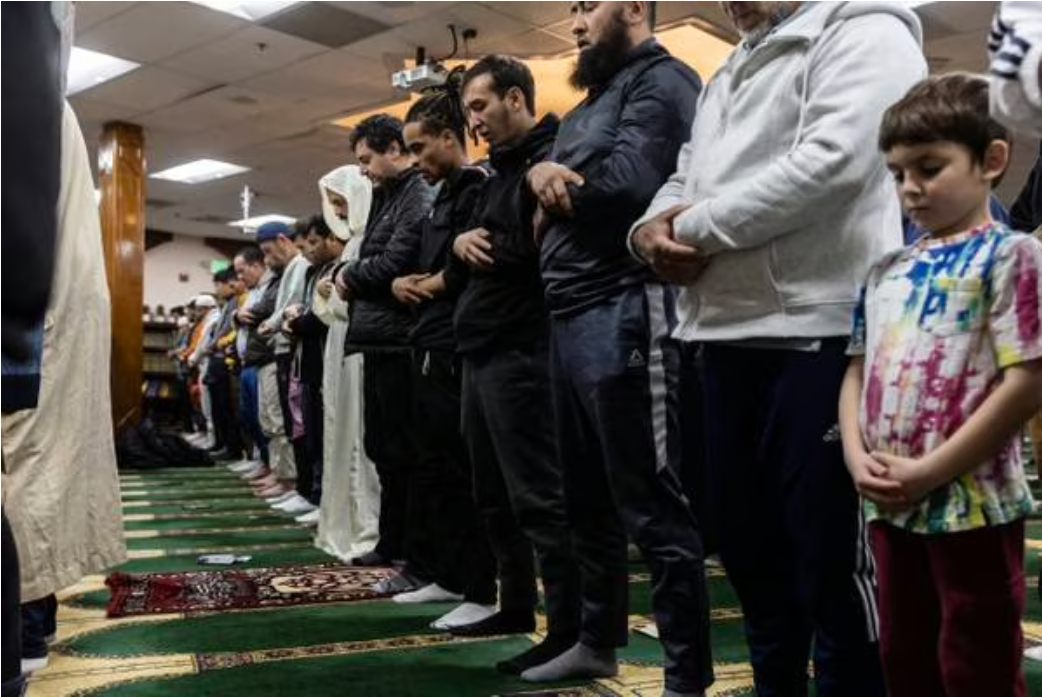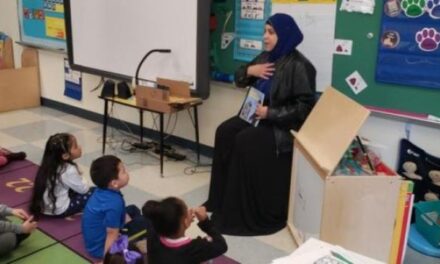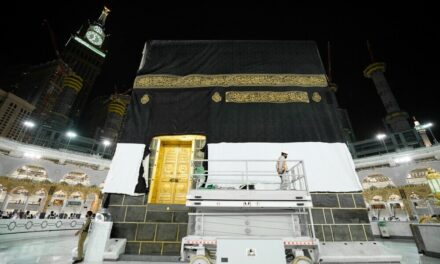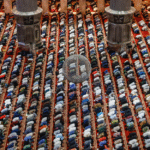Muslims pray during on the first day of Ramadan at the Islamic Centre of Southern California in Los Angeles, California. EPA
It all started last year, when Saamih Bashir’s eldest son, Kareem, a ninth-grade pupil in the US state of Michigan, started complaining about never having the day off from school during Eid Al Fitr.
Instead of being able to enjoy the celebrations and time with his family, Kareem said he was stressed out.
“He went to the school board meeting and said that we always have to struggle during Eid, always having to choose between schoolwork and celebrating the holiday,” said Mr Bashir, 47, a Muslim-American father of four.
Now Mr Bashir and others are in the process of forming a Muslim parents’ council. They are also working on submitting an official petition asking the Plymouth Canton Community school system to have Eid Al Fitr, which marks the end of the fasting month of Ramadan, declared a school holiday.
A 2021 study by the Pew Research Centre found that there are about 3.85 million Muslims in the US — a little more than 1 per cent of the population. Of that number, about 1.35 million are school-aged children.

Muslims in America make up about 1 per cent of the total population. EPA
Most school districts across the country have historically maintained calendars that only take Christian holidays into account, mainly Christmas and Easter. Some districts with large Jewish populations also mark Jewish holidays.
In 2015, New York City, where about 10 per cent of the school-aged population identifies as Muslim, announced that it would close the public school system in observance of Eid Al Adha and Eid Al Fitr.
Several other school districts in big cities followed suit, including Philadelphia, Baltimore and a number of districts in Minnesota, all of which have sizeable Muslim populations.
Now, more pupils and parents in smaller districts in Michigan, California, New Jersey, Connecticut and other communities across the country are advocating Muslim holidays to become integrated into school calendars.
“My son is doing his part and I’m doing mine,” Mr Bashir, who lives in Canton, Michigan, told The National. “I don’t give up. If one way doesn’t work, I will try another way. And I will keep trying until it happens.”
Canton, located west of the city of Detroit, has a population of about 100,000. For Eid, Mr Bashir, who was born in Cairo, says about 4,000 people typically show up for prayers and celebrations at the city’s three mosques.
After prayers, the mosques host festivals with food trucks, games and rides for children.
Gesture of equality
“When students are in a school district that has closed for Eid, it is a very clear sign that the school district sees them as a viable component of their school district community,” Amaarah DeCuir, a senior lecturer in education at the American University in Washington, tells The National.
“It is seen as an action of validation for their religious priorities.”
According to her research, about 19 school districts have made the move so far, she says.
But there are many challenges, Ms DeCuir says, including a common concern among school administrators that recognising Muslim holidays would mean that other minority religious groups in the US could make similar demands, at a time when schoolchildren already have many days off every year.
“There is this idea that if we close for this holiday, are we closing for all holidays? How are we making this decision?” Ms DeCuir says.
Drastic change
Research shows that pupils do better academically when they are in an inclusive environment that fosters their sense of belonging.
Following the 9/11 attacks, Muslims in America were subjected to hate crimes and discrimination, including in schools.
Under former president Donald Trump, who took office in 2016, Islamophobia saw a resurgence after he made a number of incendiary comments, including falsely claiming that Muslims in New Jersey had celebrated the 9/11 attacks.
His administration also passed legislation that banned citizens from several Muslim-majority countries from entering the country.
Despite this, Muslim Americans have been gaining more positive visibility.
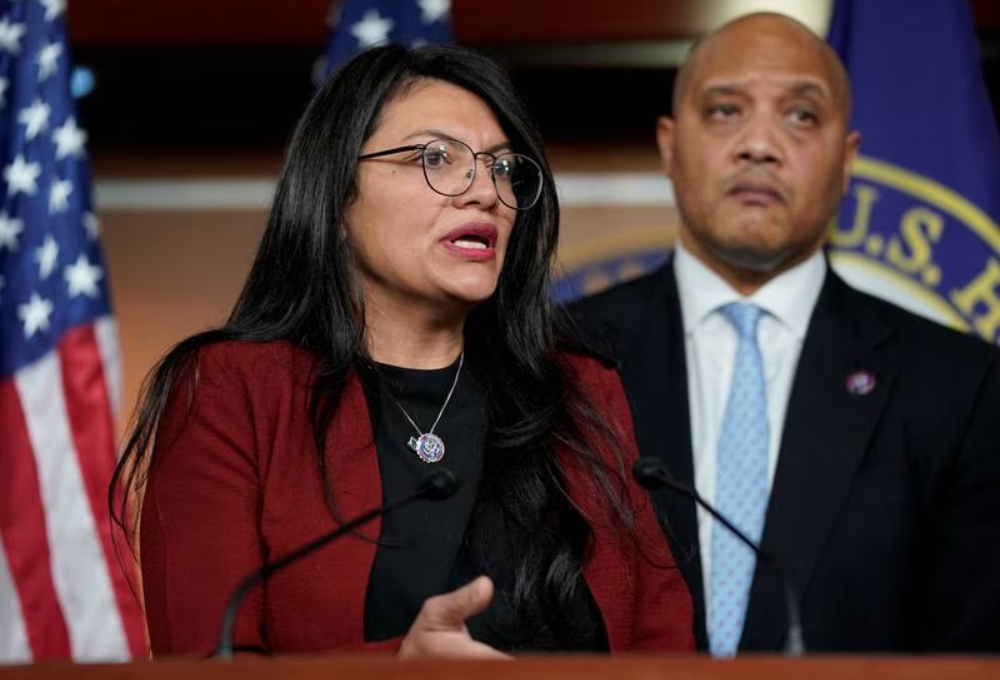
In 2019, two Muslim women were elected to Congress, and the 2022 midterm elections saw a record number of Muslim Americans elected to office.
Mr Bashir, meanwhile, says he is hopeful that his efforts will be successful soon. So far, more than 400 parents have signed the petition to make Eid Al Fitr a holiday, he says.
“It means a lot to us,” Mr Bashir says. “First of all, the children will feel like they belong, that they’re just like everyone else.”
